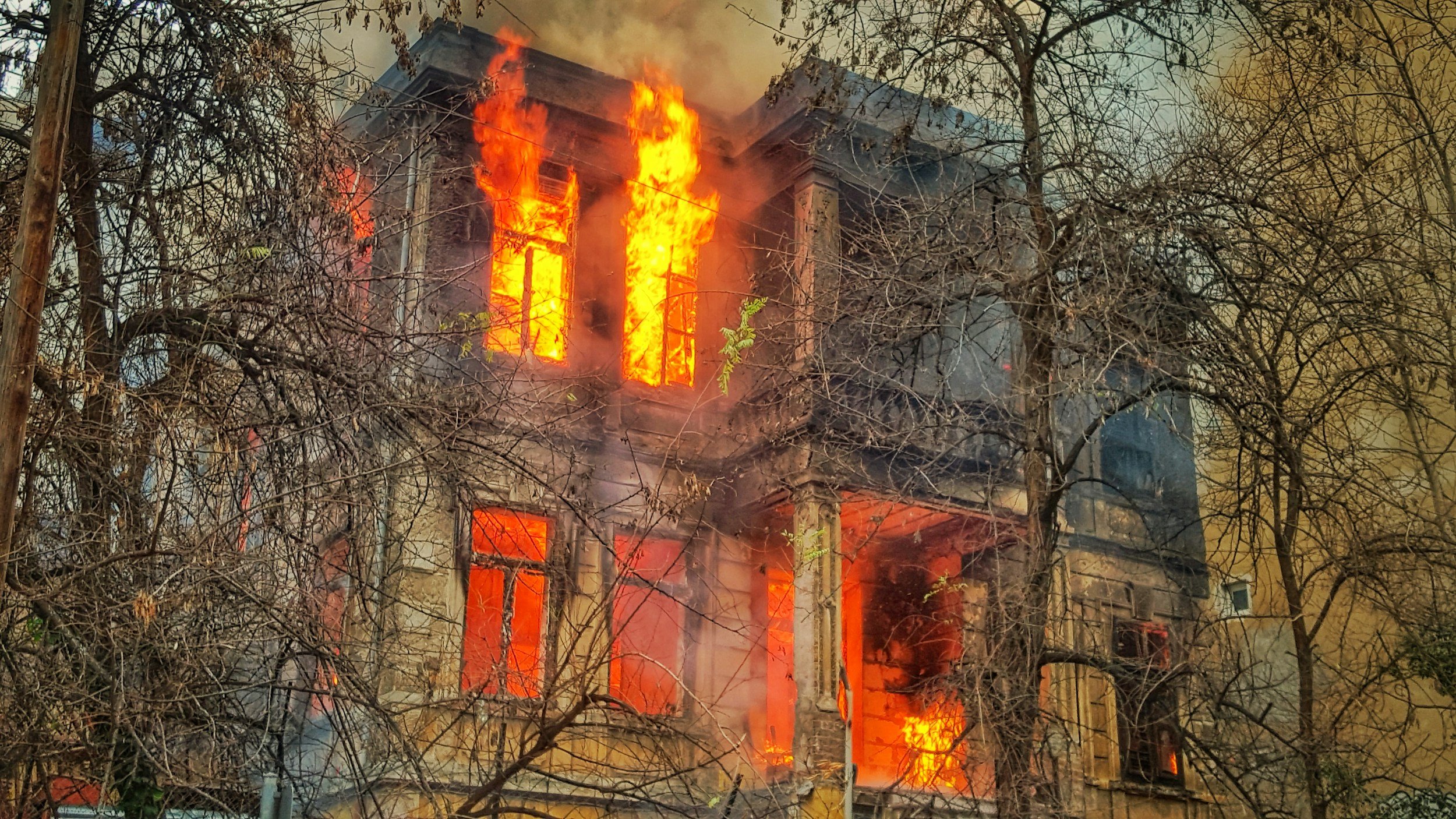
What to Do After a Fire?
Experiencing a house fire is overwhelming, but knowing what steps to take next can make recovery smoother. This guide outlines the most important actions to protect your safety, secure your property, and begin the restoration process.
Locally owned. Fully licensed. Always on call.
1. Ensure Immediate Safety
Evacuate and account for everyone. Leave the home immediately, call 911, and make sure all household members and pets are safe.
Do not re-enter the home until emergency responders declare it safe.
2. Contact Emergency Services & Utilities
Report the fire. If you haven’t already, have firefighters or local authorities inspect the damage.
Turn off utilities. If safe, shut off gas, electricity, and water at the main supply.
Call licensed professionals to inspect gas lines or electrical systems before restoring power or heat.
3. Notify Your Insurance Company
Report the incident immediately to your homeowner’s insurance provider.
Document all damage with clear photos or video (from a safe distance).
Ask your agent about coverage options: temporary housing, cleaning, contents replacement, and full restoration.
4. Find Immediate Shelter
Use your insurance’s “loss of use” benefits, which may cover hotel stays and meals.
Reach out to the American Red Cross, local shelters, or nearby friends and family for assistance.
Keep all receipts for temporary living expenses — even small ones may be reimbursable.
5. Secure the Property
Board up or tarp damaged windows, doors, and openings to prevent further damage or theft.
Have a licensed contractor or inspector assess the structural safety before re-entry or repair.
Need help with Board Up? Call After Fire at 570-447-4627
6. Handle Salvageable Belongings
Sort items into “keep,” “clean,” or “discard” categories.
Clean soot-covered items carefully using dry methods first. Consult restoration experts for delicate or high-value items.
Use specialty cleaning products to save clothing, linens, and upholstered furniture where possible.
7. Begin the Cleanup & Restoration Process
Hire a qualified fire restoration company with experience and good reviews.
Plan your rebuild. Work with your insurer, contractor, and any needed architects or engineers.
Keep records of all communication, costs, and project milestones in a safe place.
Need help with restoration? Call After Fire at 570-447-4627
8. Take Care of Emotional Well-Being
Contact free counseling services provided by nonprofits or your insurance provider.
Lean on your support system — friends and family can help in more ways than you think.
Healing takes time. Be patient with yourself and your loved ones.
9. Plan for the Future
Review and adjust your insurance coverage to reflect actual rebuild costs.
Create a digital and physical inventory of valuables and documents.
Upgrade your safety systems: smoke detectors, fire extinguishers, escape ladders, and fire-resistant materials.
-
Ensure everyone is safe and accounted for, including pets. Call 911, and do not re-enter your home until firefighters confirm it’s safe. Once the emergency is over, begin notifying your insurance provider and securing temporary shelter.
-
No. Utilities like gas, electricity, and water should only be restored by licensed professionals after the structure is declared safe. Turning them on prematurely can lead to further damage or danger.
-
Contact your homeowner’s insurance company as soon as possible. Provide them with initial details and begin documenting all visible damage with photos or video. Keep receipts for temporary housing and essential purchases.
-
Check if your insurance covers temporary housing under “loss of use.” You can also reach out to the American Red Cross, community shelters, or friends and family for short-term accommodations.
-
Light surface cleaning may be possible, but smoke and soot particles can be hazardous and deeply embedded. It’s best to have a fire restoration company inspect and guide you through safe cleaning or perform it professionally.
-
Separate your belongings into “keep,” “clean,” and “discard” categories. Soft materials like clothing and linens can often be saved, but electronics, porous surfaces, and food items may need to be replaced. When in doubt, consult with a restoration specialist.
-
If there are signs of structural compromise (sagging ceilings, broken beams, cracked walls), do not re-enter the home. A licensed contractor or building inspector should assess it before cleanup or repairs begin.
-
It depends on the extent of the damage. Some projects take a few weeks, while full reconstructions can span several months. A professional restoration company like After Fire will give you a clear timeline and keep you informed throughout.
-
When rebuilding, consider upgrading to fire-resistant materials, installing smoke detectors in every room, and maintaining fire extinguishers and escape ladders in key locations. Regular electrical and HVAC inspections can also reduce future risk.
Areas We Serve
Clinton County, PA
Lycoming County, PA
Northumberland County, PA
Union County, PA
Montour County, PA
Snyder County, PA
Have More Questions?
Our team is here to help guide you through every step of the recovery process.
After Fire – Fire Restoration Experts
Based in Lewisburg, PA | Serving Central PA Counties
Email: swelsh@afterfire.co
Call Now: 570-447-4627
